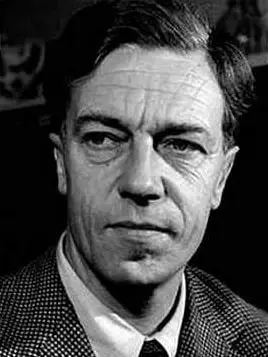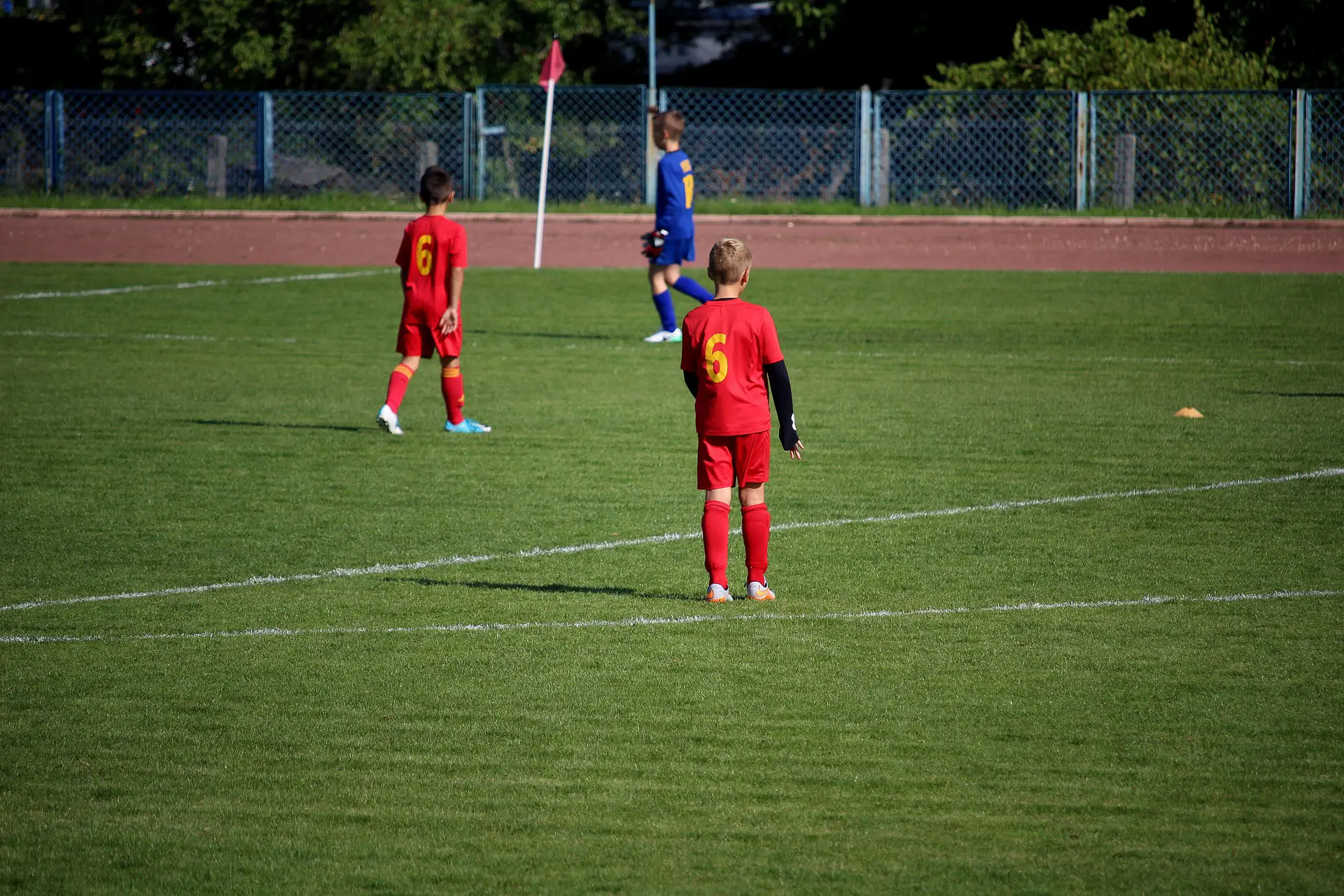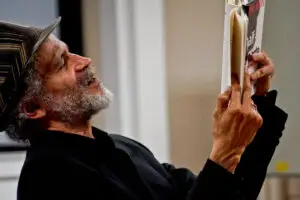
FULL POEM - SCROLL DOWN FOR LINE-BY-LINE ANALYSIS
It is eighteen years ago, almost to the day –
A sunny day with leaves just turning,
The touch-lines new-ruled – since I watched you play
Your first game of football, then, like a satellite
Wrenched from its orbit, go drifting away
Behind a scatter of boys. I can see
You walking away from me towards the school
With the pathos of a half-fledged thing set free
Into a wilderness, the gait of one
Who finds no path where the path should be.
That hesitant figure, eddying away
Like a winged seed loosened from its parent stem,
Has something I never quite grasp to convey
About nature’s give-and-take – the small, the scorching
Ordeals which fire one’s irresolute clay.
I have had worse partings, but none that so
Gnaws at my mind still. Perhaps it is roughly
Saying what God alone could perfectly show –
How selfhood begins with a walking away,
And love is proved in the letting go.

LINE-BY-LINE ANALYSIS
STANZA 1
It is eighteen years ago, almost to the day –
The first line sets the scene for the speaker’s memory and conveys its importance to him. This day clearly left a great impression on him, such that he can recall the exact day it took place even after eighteen years have passed.
A sunny day with leaves just turning,
The seasonal shift from summer to winter is a metaphor for a transitional period in the speaker’s life. With hindsight, this transition is the acceptance of his son’s growing maturity and independence, recognising that his role in his son’s life will gradually diminish from this point.
The touch-lines new-ruled – since I watched you play
Your first game of football, then, like a satellite
The speaker directly addresses his son. The poem is autobiographical with the poet, C Day-Lewis, addressing his son Sean as he watches him play his ‘first game of football’. The poem is written in the second person to create a personal, heartfelt tone and to deepen the connection between father and son. The caesura throughout these two lines represents the boundaries between them, however, emphasising the child’s quest for independence as he grows up.
Wrenched from its orbit, go drifting away
The simile ‘like a satellite wrenched from its orbit, go drifting away behind a scatter of boys’ is a sudden, violent and unnatural image to describe the speaker’s son choosing to follow his friends after the match rather than returning to his father. A satellite orbits a planet hence, in this case, signifies the boy’s previous reliance on his father and his constant presence around him. The satellite being ‘wrenched from its orbit’ then represents the son’s journey to independence as he drifts away from the state of reliance on his father to a new orbit where he plays a diminishing role.
STANZA 2
Behind a scatter of boys. I can see
This spatial description emphasises the physical and emotional separation between father and son. They are separated by ‘a scatter of boys’, the boy’s peers, which represent an obstruction to the emotional bond between father and son.
You walking away from me towards the school
With the pathos of a half-fledged thing set free
Through the use of the bird metaphor ‘half-fledged’, C-Day Lewis portrays the boy’s vulnerability and his youthful naivety. The word ‘fledged’ describes a young bird that has just become capable of flight. The fact that the boy is only ‘half-fledged’ suggests that he has not sufficiently matured to be ready for independence, just as a ‘half-fledged’ bird is not sufficiently matured to be ready to fly. This evokes sadness in his observing father, who recognises that, with every day that he grows up; he’ll be a day closer to independence.
Into a wilderness, the gait of one
The ‘wilderness’ represents the boy’s future – an unexplored place that is his responsibility to shape and not that of his father. ‘Wilderness’ is quite a threatening word choice which reflects the speaker’s fears that his son won’t survive without his guidance.
Who finds no path where the path should be.
The speaker wants the best for his son in life, he wants to have the power to lay a ‘path’ through the ‘wilderness’ of his future to take him to success and avoid pain and failure. He fears his inevitable incapability in doing this and, thereby, his powerlessness to protect his son.
STANZA 3
That hesitant figure, eddying away
Like a winged seed loosened from its parent stem,
In a fluid, eddying is where eddy currents move in a circular motion against the main current. The simile ‘eddying away like a winged seed loosened from its parent stem’ describes the boy helplessly drifting away from his father ‘like a winged seed’ floats in the air away ‘from its parent stem’. This and eddying are a natural phenomenon, something out of the grasp of both the father and son’s control.
Has something I never quite grasp to convey
About nature’s give-and-take – the small, the scorching
Ordeals which fire one’s irresolute clay.
The speaker can’t quite put into words the plethora of emotions that parenthood (‘nature’s give-and-take’) simultaneously forces on him, from the joy of having a son to the despair that one day his son won’t need him anymore. ‘The small, the scorching ordeals which fire one’s irresolute clay’ are a metaphor for the experiences, those of suffering in this case, which shape the growth of a person. These experiences are symbolised by the fire that transforms the malleable, impressionable clay (representing childhood) into a firm, independent clay pot that represents adulthood.
STANZA 4
I have had worse partings, but none that so
Gnaws at my mind still. Perhaps it is roughly
The phrase, ‘gnaws at my mind still’ is animalistic imagery, likening the pain of this memory to the aggressive, predatory manner in which an animal gnaws at a bone – as though this memory is preying on his mental wellbeing.
Saying what God alone could perfectly show –
How selfhood begins with a walking away,
And love is proved in the letting go.
In these final three lines, the speaker comes to the resolution that ‘selfhood begins with a walking away’, and love is proved in the letting go’. In other words, he realises that by allowing his son to walk away, he enabled him to take the first steps towards independence and individuality. He also acknowledges that, just like he, God also let his son, Jesus, descend from heaven unto Earth to bless the people as a sign of God’s love for them. By identifying with the actions of God, the speaker is able to resolve the troubles in his mind with the poignant message that ‘love is proved in the letting go’.


